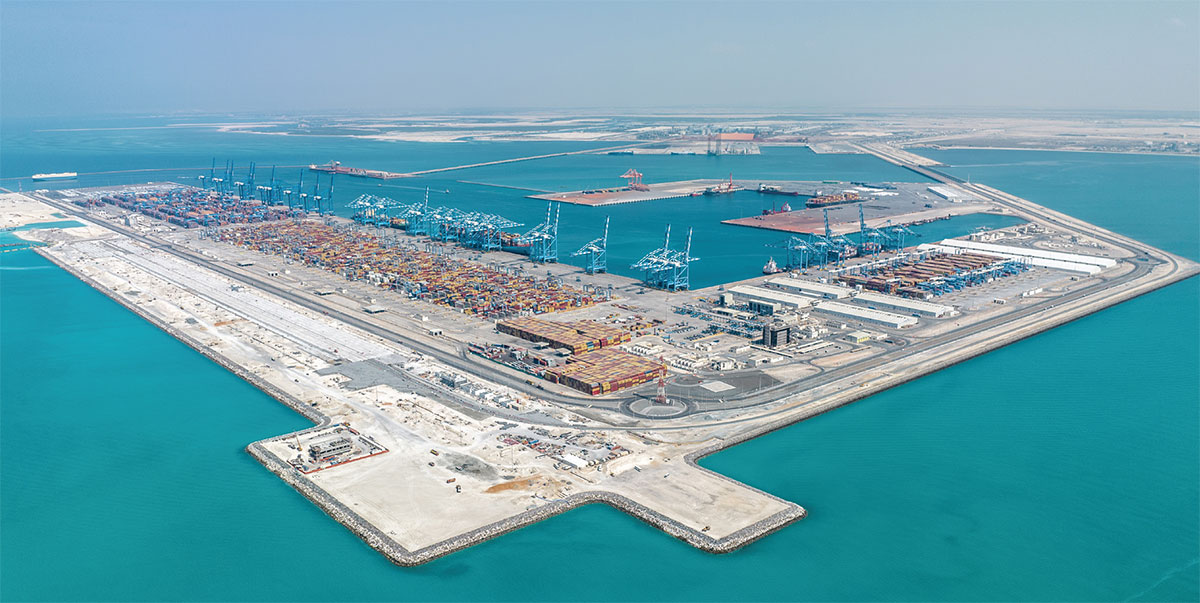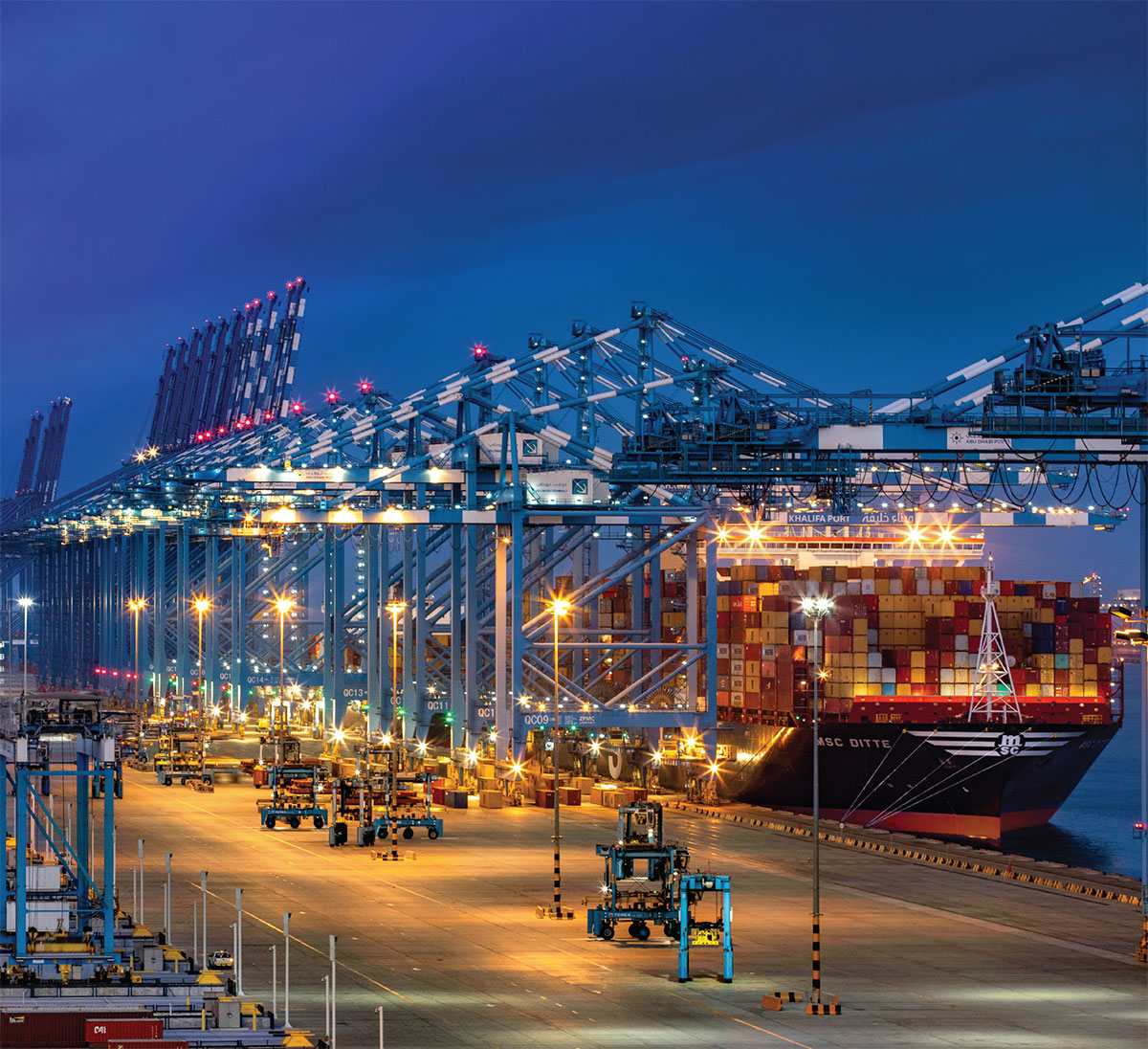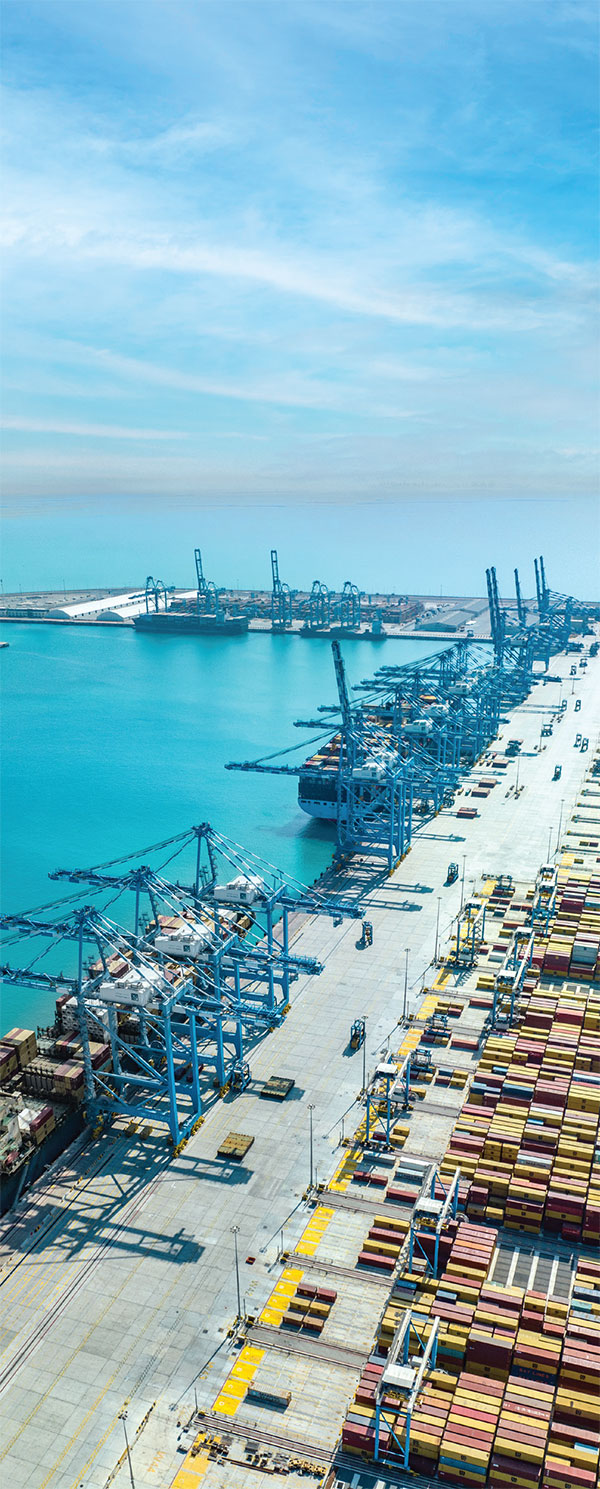 Khalifa Port has become a major trade gateway in the UAE. Located between Abu Dhabi and Dubai, it connects the Emirates to global and regional markets. With its advanced infrastructure, Khalifa Port has become the preferred destination for shipping lines, logistics providers, and industrial players.
Khalifa Port has become a major trade gateway in the UAE. Located between Abu Dhabi and Dubai, it connects the Emirates to global and regional markets. With its advanced infrastructure, Khalifa Port has become the preferred destination for shipping lines, logistics providers, and industrial players.
A defining feature is its multi-terminal ownership model, which includes global leaders like CMA CGM, COSCO, Abu Dhabi Terminals (ADT), and MSC. This diversified setup drives competition, enhances service efficiency, and fosters technological innovation.
While many global ports face congestion, Khalifa Port ensures faster vessel turnaround and efficient cargo handling. Its design helps it manage high volumes with minimal delays. What truly drives this efficiency is its synchronized collaboration among terminal operators, customs, regulatory authorities, and shipping lines, ensuring that customer needs are prioritized and potential delays are quickly resolved.
Moreover, its strategic location provides access to key industrial hubs, including Abu Dhabi city, Al Ain, and the southern Dubai areas of DIP, DIC, and Technopark. The Al Faya corridor strengthens this reach, enabling smooth cargo flows between the port and industrial zones.
The port also maintains a balance between automation and human interaction. Despite being the region’s first semi-automated terminal, Khalifa Port offers strong customer support and competitive pricing. Its efficiency and reliability have made it the top choice for regional trade.
 Smarter Logistics through Connectivity and Integration
Smarter Logistics through Connectivity and Integration
Khalifa Port’s logistical strength is significantly enhanced by its integration with the UAE’s national rail network. This rail link enables direct and efficient cargo transport to key Emirates, allowing multimodal solutions that reduce dependence on road freight. Rail connectivity makes Khalifa Port a leader in multimodal logistics. It will enable businesses to combine sea, rail, and road transport for maximum efficiency. This capability aligns with the UAE’s long-term goals for transport and sustainability.
 The port is closely linked to KIZAD—Khalifa Industrial Zone Abu Dhabi. KIZAD is one of the region’s largest industrial zones. Together, they offer a robust base for manufacturing, logistics, and distribution. The result is faster production cycles, reduced overheads, and stronger regional trade links. Khalifa Port and KIZAD together form a logistics ecosystem.
The port is closely linked to KIZAD—Khalifa Industrial Zone Abu Dhabi. KIZAD is one of the region’s largest industrial zones. Together, they offer a robust base for manufacturing, logistics, and distribution. The result is faster production cycles, reduced overheads, and stronger regional trade links. Khalifa Port and KIZAD together form a logistics ecosystem.
Khalifa Port’s smart connectivity, paired with its industrial zone, gives it a long-term advantage. It enables streamlined trade, quicker response times, and future-ready infrastructure.
CSS Group: Driving Multimodal Logistics through Khalifa Port
CSS Group, a key regional logistics player, has long aligned its strategies with Khalifa Port’s strengths. As a leader in freight forwarding, CSS supports critical trade routes and industrial projects that rely on the port’s capabilities. Its active engagement goes beyond traditional logistics—CSS helps clients navigate complex multimodal transitions through solutions like the port-rail link and expedited carrier services originating at the Khalifa terminal.
 A shining example of this connectivity in action is CSS Group’s pioneering initiative—the successful execution of the UAE’s first rail movement of carrier-laden containers for export, utilizing the newly operational Etihad Rail network. This milestone reinforces Khalifa Port’s position as a hub capable of handling next-generation supply chain requirements.
A shining example of this connectivity in action is CSS Group’s pioneering initiative—the successful execution of the UAE’s first rail movement of carrier-laden containers for export, utilizing the newly operational Etihad Rail network. This milestone reinforces Khalifa Port’s position as a hub capable of handling next-generation supply chain requirements.
CSS supports large-scale infrastructure and industrial projects moving through Khalifa Port. Its services maximize efficiency by using port-rail links and fast-tracked carrier connections. These options are beneficial for cargo that arrives at or departs from the Khalifa terminal.
Southern Dubai presents a unique logistics challenge due to its distance from the port. CSS has addressed this with flexible solutions. By offering alternative loading options via the Al Faya depot, it supports cargo movements from areas like Dubai Investment Park (DIP), Dubai Industrial City (DIC), and Technopark. This gives businesses in southern Dubai direct access to Khalifa Port’s services without added costs or time delays.
By partnering with Khalifa Port, CSS Group delivers value beyond traditional logistics. It helps customers adapt to shifting trade patterns, embrace multimodal transport, and achieve long-term supply chain goals. Khalifa Port is not just a maritime facility—it is a regional trade enabler, logistics powerhouse, and symbol of the UAE’s vision for economic diversification and connectivity. As trade volumes grow and multimodal logistics become the norm, Khalifa Port is poised to remain at the forefront of the region’s shipping and logistics landscape.